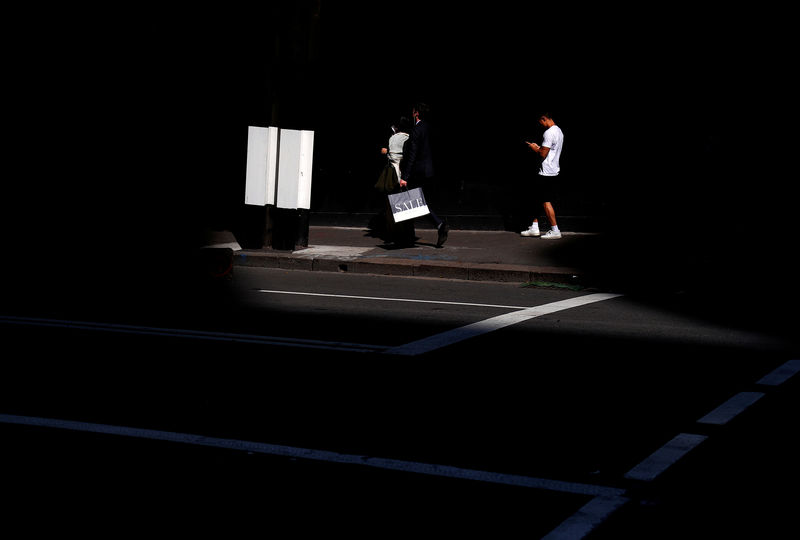By Swati Pandey and Wayne Cole
SYDNEY (Reuters) - Australian retailers posted their weakest quarter in seven years in March in a bad omen for the broader economy as the country's central bank deliberates on whether or not to cut interest rates later on Tuesday.
Figures from the Australian Bureau of Statistics (ABS) showed retail sales rose a tepid 0.3 percent in March compared with an upwardly revised 0.9 percent in February and forecasts for a 0.2 percent gain in a Reuters poll.
For the first quarter as a whole, sales fell 0.1 percent in inflation-adjusted terms for its first negative reading since September quarter of 2012 and followed an already sedate December quarter.
The soft result implies retail sales did not contribute to growth in Australia's A$1.9 trillion economy in the March quarter. It also adds to growing evidence of a rocky outlook, given household spending accounts for around 57 percent of annual gross domestic product.
The quarterly data showed the decline in volumes was led by household goods retailing - a sign Australia's heavily indebted consumers are re-thinking spending decisions on big-ticket items as home prices tumble.
Department store sales were also weak while demand for food and eating out stayed upbeat.
"These data bolster the case for a near-term rate cut and reinforces our view that the RBA (Reserve Bank of Australia) will have to downgrade its outlook for growth," said Sydney-based National Australia Bank economist Kaixin Owyong.
Calls from some analysts for the RBA to ease policy at its May meeting intensified after first-quarter inflation came in below expectations to undershoot the central bank's 2-3 percent target for 13 straight quarters.
About 40 percent of economists polled by Reuters in late-April expect the RBA to cut interest rates on Tuesday to an all-time low of 1.25 percent while futures market imply a 36 percent chance of a cut.
The RBA decision is due at 0430 GMT.
Other data out on Tuesday showed Australia's commodity exporters enjoying a bonanza from high prices, notably iron ore. The country's trade surplus came in at A$4.9 billion ($3.4 billion) for March, bringing the total for the quarter to a record A$14.74 billion.
Westpac economist Andrew Hanlan estimates inflation-adjusted net exports likely added to domestic activity in the March quarter, potentially in the order of 0.4 percentage points.
"This is an upside surprise to our forecast of 0.1 percentage point, albeit largely driven by falling imports - a sign of domestic weakness - rather than by strength in exports," Hanlan said in a note.
Westpac expects two RBA rate cuts later in the year.
